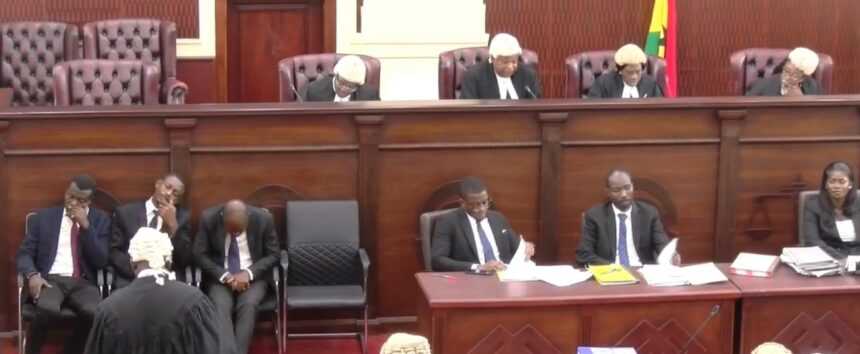adverts
The Supreme Court is poised to deliver its judgement on two landmark lawsuits challenging the constitutionality of the Human Sexual Rights and Family Values Bill, widely referred to as the anti-gay bill.
This ruling follows months of intense public debate and political contention surrounding the controversial legislation, which seeks to criminalise activities associated with LGBTQ+ advocacy in Ghana.
Key Provisions of the Bill
If enacted, the bill would impose severe penalties on individuals who promote or fund pro-LGBTQ+ initiatives and extend liability to those providing indirect support. Proponents of the bill argue that it is vital to protect Ghanaian cultural and family values, which they claim are under threat from foreign ideologies.
adverts
Conversely, critics see the proposed legislation as a significant violation of fundamental human rights, including freedom of expression, association, and equality under the law.
The legal challenges, filed by journalist and lawyer Richard Dela Sky and equality advocate Amanda Odoi, question the constitutionality of the legislative process for the bill.
The plaintiffs argue that Parliament failed to meet the quorum requirements outlined in Articles 102 and 104 of the Constitution during the bill’s passage. They contend that this procedural breach renders the legislative process unconstitutional and the bill invalid.
The Supreme Court’s ruling will address whether the legislative process adhered to constitutional standards. A decision in favour of the plaintiffs could halt the bill’s progress, while a dismissal of the challenge would clear the path for its eventual passage.
This decision is expected to have far-reaching implications, not only for the bill but also for Ghana’s democratic governance, legislative accountability, and adherence to human rights obligations.
With tensions running high on both sides of the debate, the Supreme Court’s judgement is being closely watched as a pivotal moment in Ghana’s legal and social history.


